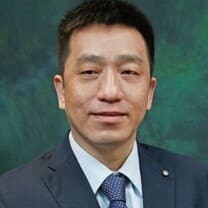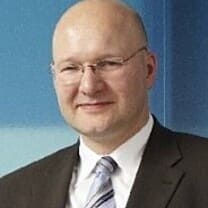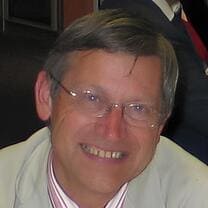6th INTERNATIONAL CONFERENCE ON
MATERIALS SCIENCE, ENGINEERING & TECHNOLOGY
Date: 28 – 30 May 2025
Venue: Paris, France
In Association With
ABOUT CONFERENCE
The 6th International Conference on Materials Science, Engineering & Technology invites scientists, researchers, engineers, academicians, and professionals from companies around the world to convene and collectively explore their visions, ideas, recent developments, and findings in the expansive realm of materials science. This conference, in association with the North Central College, United States, will take place in Paris from 28th to 30th May 2025. It promises to serve as a dynamic platform for participants to exchange knowledge, innovative ideas, and invaluable experiences, fostering interdisciplinary collaboration and advancing the understanding of various aspects within the field of materials science. Join us as we embark on this enriching journey of exploration and discovery.
- CONFERENCE KEY DATES
18 April 2025 Abstract Submission End
15 May 2025 Regular Registration End
28 May 2025 Conference Opening Ceremony
CONFERENCE CHAIR

Dr. Shan-Ju Chiang
Department Head of Mechanical & Electrical Engineering, North Central College, United States
Dr. Shan-Ju Chiang's research is situated in the field of renewable energy, with a special focus on solid-state batteries and advance ceramics. Dr. Chiang sees her research as part of the broader effort in the sustainable energy to study the interaction linking human society, environment, and materials development in the contemporary world.Dr. Shan-Ju Chiang’s research is situated in the field of renewable energy, with a special focus on solid-state batteries and advance ceramics. Dr. Chiang sees her research as part of the broader effort in the sustainable energy to study the interaction linking human society, environment, and materials development in the contemporary world. She is committed to disrupting global trends in engineering with respect to women and men of color receiving engineering degrees, and to make North Central College a national model for equity and excellence in engineering!
CONFERENCE CO-CHAIR

Dr. Xuemei Wang
School of Biological Science and Medical Engineering, Southeast University (SEU), China
Since 2001, Dr. Xuemei Wang is a professor of School of Biological Science and Medical Engineering of Southeast University (SEU), China. She has published more than 200 research articles in SCI(E) journals.She has completed her PhD in Chemistry from Nanjing University in 1994 and then worked as a lecturer in Department of Chemistry in Nanjing University from 1995 to 1996. From 1996 to 1998 she studied in Saarland University in Germany with Alexander von Humboldt fellowship. Then she came back to Nanjing and obtained the position of an Associate Professor at SEU, and since 2001 she become a full professor at SEU.
CONFERENCE COMMITTEE

Prof. Rodrigo Martins
President, European Academy of Sciences | New University of Lisbon
Portugal

Prof. Shoshana Arad
Ben-Gurion University of the Negev
Israel

Prof. Jerzy Szpunar
University of Saskatchewan
Canada

Prof. Lorna Uden
Staffordshire University
United Kingdom

Prof. Fang Wang
University of Chinese Academy of Sciences
China

Prof. Abdeltif Amrane
Institute of Chemical Sciences of Rennes
France

Dr. Noor alhuda Ahmed AL Saqri
Sultan Qaboos University
Oman

Dr. Teresa S. Ripolles
University of Valencia
Spain
6TH EDITION HIGHLIGHTS: SPEAKERS

Prof. Rabah Boukherroub
University of Lille, CNRS
France
Turning waste polymers into added-value materials and fuels

Prof. Jianhua Hao
The Hong Kong Polytechnic University
Hong Kong
Group-V elemental 2D van der Waals heterostructure for field-effect transistor

Prof. Bernd Szyszka
Technische Universität Berlin
Germany
Hollow cathode co-sputtering of dielectric and active semiconductive oxide films for catalysis and transparent electronics

Prof. Paul Lecoq
European Organization for Nuclear Research (CERN)
Switzerland
Metascintillators for medical imaging applications
CONFERENCE HIGHLIGHTS
- Global Participation: Drawing participants from diverse backgrounds and geographic locations, the conference fosters a rich tapestry of perspectives and insights.
- Cutting-edge Research: Explore the latest advancements, breakthroughs, and innovations in materials science, spanning a wide spectrum of topics.
- Interdisciplinary Collaboration: Facilitating interdisciplinary dialogue, the conference promotes collaboration across various fields, driving innovation and discovery.
- Networking Opportunities: Engage with peers, experts, and industry leaders, forging valuable connections and partnerships for future endeavors.
- Knowledge Exchange: Share your vision, ideas, recent developments, and findings, while gaining insights from fellow participants through interactive sessions, and presentations.
- Opportunities to visit the France’s natural and cultural landscapes
Join Us: Embark on this enriching journey of exploration and discovery, as we convene in France for the 06th International Conference on Materials Science, Engineering & Technology. Together, let us shape the future of materials science and propel it to new heights of excellence.
SESSIONS
- Advanced Building and Infrastructure Materials
- Advanced Energy Conversion: Solar Thermal, CSP, Thermophotovoltaics
- Advanced Photovoltaic Materials: Solar Cells, Thin Films, Perovskites, Organic and Hybrid Photovoltaics
- Carbon Capture, Utilization, and Storage (CCUS)
- Catalysis and Chemical Processes
- Electrochemical Energy Storage: Batteries, Supercapacitors, Solid-state Batteries, Flow Batteries
- Energy Harvesting Materials: Thermoelectrics, Piezoelectrics, Triboelectrics
- Energy-efficient Building Materials and Technologies
- Energy-efficient Lighting: LEDs, OLEDs, Phosphors
- Energy-efficient Sensors and Systems
- Environmental Impact and Life-cycle Analysis
- Fuel Cell Technologies: Hydrogen Production, Storage, Fuel Cells
- Grid-scale Storage Solutions: Compressed Air Energy Storage, Pumped Hydroelectric Storage
- Hydrogen Storage and Utilization
- Insulation and Thermal Management
- Materials for Electronics and Power Devices
- Nanogenerators and Piezoelectronics
- Nanomaterials for Energy Applications
- Next-Generation Batteries
- Nuclear Energy Materials
- Phase Change Materials
- Smart Grid Technologies
- Smart Windows and Transparent Solar Cells
- Sustainable Energy Applications: Biomass, Biofuels, Waste-to-energy
- Transportation Applications: Lightweight Materials, Electric Vehicles, Hybrid Vehicles, Aerospace
- Wind and Hydroelectric Energy Materials
- Advanced Characterization of Photonic Materials
- Advanced Lasers and Photodetectors
- Electro-optic and Acousto-optic Materials
- Integration of Photonic and Electronic Materials
- Light-Emitting Diodes (LEDs) and Display Technologies
- Materials for Nonlinear Optics
- Materials for Terahertz Applications
- Nanoscale Photonics
- Optical Fibers and Waveguides
- Organic and Inorganic Photovoltaic Materials
- Photonic Crystals and Metamaterials
- Photonic Materials for Communication Technologies
- Quantum Dots and Quantum Well Structures
- Semiconductor Materials and Devices
- Synthesis and Processing of Photonic Materials
- Transparent Conducting Oxides
- Advances in Electrochemical Energy Storage
- Battery Materials and Energy Storage Systems
- Catalysts for Energy Applications
- Energy-Efficient Materials and Technologies
- Environmental Impact of Materials Science
- Fuel Cells and Hydrogen Technology
- Green Materials and Sustainable Technologies
- Materials for CO2 Capture and Utilization
- Materials for Nuclear Energy
- Materials for Solar Energy Conversion and Photovoltaics
- Materials for Water Treatment and Purification
- Materials for Wind and Hydro Energy
- Photocatalytic Materials for Environmental Applications
- Supercapacitors and Energy Harvesting
- Thermoelectric Materials
- Waste Management and Recycling Materials
- Advanced Nanocomposites
- Carbon Nanotubes and Nanofibers
- Characterization and Metrology of Nanomaterials
- Commercialization and Industrial Applications of Nanomaterials
- Environmental Applications of Nanotechnology
- Functional Nanomaterials: Structure, Properties, and Applications
- Gold Nanoparticles
- Graphene and Carbon Nanostructures
- Graphene and Other 2D Materials
- MXenes—Current Research and Scope of Future Advancements
- Nano- and Smart Materials in Solar Energy, Conversion, and Storage
- Nano-Biosensors
- Nanobiotechnology
- Nanocomposites and Hybrid Nanomaterials
- Nanocrystalline Materials
- Nanodevices and Nanosensors
- Nanodiamonds
- Nanoelectronics and Nanophotonics
- Nanoelectronics and Nanosensors
- Nanofabrication and Nanomanufacturing
- Nanofluids
- Nanographene Batteries
- Nanomaterials Fabrication, Characterization, Modeling, and Simulation
- Nanomaterials for 3D Printing and Additive Manufacturing
- Nanomaterials for Advanced Coatings and Surface Engineering
- Nanomaterials for Agriculture and Food Industry
- Nanomaterials for Biomedical Applications
- Nanomaterials for Biotechnology and Bioengineering
- Nanomaterials for Catalysis and Chemical Processes
- Nanomaterials for Drug Delivery and Therapeutics
- Nanomaterials for Electronics and Optoelectronics
- Nanomaterials for Energy Applications
- Nanomaterials for Energy Storage and Conversion
- Nanomaterials for Environmental Applications
- Nanomaterials for Flexible and Wearable Electronics
- Nanomaterials for Photonics and Plasmonics
- Nanomaterials for Tissue Engineering and Regenerative Medicine
- Nanomaterials for Water Purification and Desalination
- Nanomechanics and Nanotribology
- Nanoparticle Synthesis and Characterization
- Nanophotonics and Plasmonics
- Nanostructured Coatings, Surfaces, and Membranes
- Nanostructured Materials and Devices
- Nanotechnology and Quantum Computing
- Nanotechnology for Space Exploration and Aerospace Applications
- Nanotechnology for Sustainable Development
- Nanotechnology for Water and Air Filtration
- Nanotechnology in Agriculture and Food Industry
- Nanotechnology in Medicine and Healthcare
- Nanotechnology in Optics and Photonics
- Nanotechnology in Water Treatment
- Nanotechnology-driven Solutions for Better Energy Storage
- Nanotoxicology and Safety Aspects of Nanomaterials
- Physico-chemical Nanomaterials and Nanotechnology
- Polymers, Colloids, and Soft Nanotechnology
- Quantum Dots and Their Applications
- Recent Advancements in Nanotechnology and Their Applications
- Synthesis and Characterization of Nanomaterials
- Toxicology and Safety of Nanomaterials
- 2D Materials and Their Functional Applications
- Advanced Characterization Techniques for Functional Materials
- Advanced Functional Polymers and Composites
- Biomimetic and Bioinspired Materials: Design and Functional Properties
- Commercialization and Industrial Applications of Functional Materials
- Computational Modeling and Simulation of Functional Materials
- Conductive and Transparent Materials
- Emerging Technologies and Applications of Functional Materials
- Ferroelectric and Piezoelectric Materials: Design, Properties, and Applications
- Functional Coatings and Surface Engineering
- Functional Materials for Biomedical Applications
- Functional Materials for Catalysis and Chemical Processes
- Functional Materials for Electronics and Optoelectronics
- Functional Materials for Energy Conversion and Storage
- Functional Materials for Environmental Monitoring and Remediation
- Functional Materials for Sensors and Actuators
- Functional Materials for Wearable Technology and Flexible Electronics
- Functional Nanomaterials: Synthesis, Characterization, and Applications
- Magnetic and Spintronic Materials: Properties and Applications
- Multifunctional Composite Materials: Design, Fabrication, and Properties
- Photonic and Plasmonic Materials: Design, Fabrication, and Applications
- Self-Healing Materials and Technologies
- Shape Memory Materials: Behavior, Applications, and Advancements
- Smart Materials and Structures: Responsive and Adaptive Behavior
- Smart Textiles and Wearable Materials
- Soft and Flexible Functional Materials
- Stimuli-Responsive and Adaptive Materials
- Structural-Functional Integrated Materials
- Superconducting Materials and Applications
- Additive manufacturing of composite and ceramic materials
- Advanced composite materials: Design, fabrication, and characterization
- Bio-inspired composites: Structure, mechanics, and applications
- Biomaterials and bioceramics: Design, fabrication, and biomedical applications
- Ceramic coatings and surface engineering: Deposition techniques, properties, and applications
- Ceramic materials for electronic and photonic applications
- Ceramic materials for energy applications: Fuel cells, solar cells, and batteries
- Ceramic matrix composites: Processing, properties, and applications
- Ceramic nanomaterials: Synthesis, assembly, and functionalization
- Characterization techniques for composite and ceramic materials
- Composite and ceramic materials for aerospace and automotive applications
- Composite and ceramic materials in medical and dental applications
- Electrically and thermally conductive composites
- Environmental and sustainability aspects of composites and ceramics
- Fiber-reinforced composites: Manufacturing and performance
- High-temperature ceramics and composites
- Hybrid composites: Combining different material types for enhanced performance
- Industrial applications and commercialization of composite and ceramic materials
- Lightweight and high-strength materials
- Modeling and simulation of composite and ceramic materials
- Multifunctional composite materials
- Nanocomposites and nanoceramics
- Natural and Bio-Based Composites
- Applications of Natural Fiber-Reinforced Composites
- Processing Techniques for Bio-Based Composites
- Mechanical Properties of Natural Composites
- Environmental Impact and Life Cycle Analysis of Bio-Composites
- Polymer-ceramic composites
- Polymer-matrix composites: Manufacturing, performance, and optimization
- Processing innovations in composites and ceramics
- Smart and multifunctional composites: Sensing, actuation, and self-healing capabilities
- Smart and responsive composite materials
- Structural ceramics: Processing, characterization, and mechanical properties
- Structural health monitoring of composite materials
- Advanced Materials in Cancer Therapy
- Antibacterial and Antimicrobial Biomaterials
- Bioactive Coatings and Surface Modifications for Medical Devices
- Bioactive Glasses and Ceramics for Medical Applications
- Bioactive Materials and Scaffolds
- Bioactive Materials for Wound Healing and Tissue Repair
- Biocompatibility Assessment and Testing of Biomaterials and Biodevices
- Biocompatible and Bioresorbable Materials: Design and Applications
- Biocompatible Polymers and Hydrogels for Biomedical Applications
- Biodegradable Materials and Stents for Medical Applications
- Biodevices for Drug Screening and Personalized Medicine
- Bioelectronics and Implantable Medical Devices
- Biofabrication and 3D Bioprinting of Tissues and Organs
- Bioinspired and Biointerfacing Materials for Improved Biocompatibility
- Biomaterials for Cardiovascular, Dental, and Orthopedic Applications
- Biomaterials for Drug Delivery and Controlled Release Systems
- Biomaterials for Neural Interfaces and Neuroengineering
- Biomaterials for Tissue Engineering and Regenerative Medicine
- Biomaterials: Synthesis and Characterization
- Biomechanics and Mechanobiology of Biomaterials
- Biomedical Applications of 3D Printing and Additive Manufacturing
- Biomimetic Materials and Structures for Biomedical Engineering
- Biosensors and Diagnostic Devices for Healthcare Monitoring
- Hydrogels and Smart Hydrogels
- Imaging and Visualization Devices
- Lab-on-a-Chip and Microfluidic Devices
- Materials for Medical Devices
- Nanomaterials and Nanoparticles for Targeted Drug Delivery
- Orthopedic and Dental Materials
- Polymers in Biomedical Applications
- Radio and Photo Therapy Devices
- Surface Modification of Biomaterials
PUBLICATION
The registered abstracts will be published on the conference website. The full paper will be published in the partners journals. All submitted papers will go through the standard review process…..
EARLIER CONFERENCE GALLERY
EARLIER PRESENTATION VIDEOS
Molecularly imprinted photocatalysts: A new route for the selective removal of emergent contaminants from water
Giuliana Impellizzeri | CNR, Italy
Elaboration of polymeric composites with microcrystalline cellulose recovered from agave bagasse: An alternative for the elaboration of materials for the automotive industry
Dendera Munguia | Potosino Institute of Scientific and Technological Research, Mexico
On numerical simulation and visualization methods of turbulent flow near surface morphology using Lattice Boltzmann method
Uldis Zaimis | Liepaja University, Latvia
Novel micelleplexes containing pluronics with application on the oncology field
Ana Figueiras | University of Coimbra, Portugal
LOCATION
Biggest materials science, engineering and technology conference will be held in Paris
Paris, the capital city of France, stands as a beacon of culture, innovation, and economic vitality, while also being a thriving hub for science, engineering, and technology. Revered globally as the “City of Light,” Paris enchants visitors with its iconic landmarks, such as the majestic Eiffel Tower and the splendid Notre-Dame Cathedral, while also serving as a center for groundbreaking research and innovation across various scientific disciplines. Renowned institutions like Sorbonne University and École Polytechnique foster cutting-edge research in fields such as biotechnology, renewable energy, and aerospace engineering, contributing to Paris’s reputation as a global leader in scientific advancement. Additionally, the city’s burgeoning startup ecosystem and investment in technology parks and incubators provide fertile ground for entrepreneurship and technological innovation, further solidifying Paris’s position as a dynamic hub for science, engineering, and technology on the world stage. With its rich history, vibrant culture, and unwavering commitment to innovation, Paris continues to inspire and attract researchers, engineers, and innovators from around the globe, shaping the future of science and technology for generations to come.
- info@msiconference.com
- Venue: Novotel Paris Pont de Sevres | Venue Address: 11-13 Grande Rue, 92310 Sèvres, France
SPONSORS & PARTNERS
Why become a sponsor/partners/exhibitor in the materials science conferences?

Make new connections

On-site and online brand exposure

Establish strong relationships
